In Texas in the 1930s, a handful of musicians began blending old-time fiddle
tunes with blues, jazz, Mexican songs and big-band swing. The danceable hybrid
they created came to be known as Western swing. Bob Wills was at the cutting
edge of those musical experiments, and he became the most popular and
influential of all the Western swing bandleaders. Along the way, he wrote songs
that have become enduring classics in country music, including "San Antonio
Rose" and "Faded Love."
James Robert Wills grew up in rural west Texas and was playing fiddle at dances
by age 10. Prior to becoming a full-time musician, he farmed, worked
construction, sold insurance and tried preaching and barbering. He found his
calling with the Light Crust Doughboys band in 1931, broadcasting over WBAP in
Fort Worth.
In 1934, Wills moved to Tulsa, Oklahoma where he and his Texas Playboys band
held court over radio station KVOO on a popular noontime show for nine years,
rivaling the popularity of pop big-bands on radio, on records and on tour. His
brand of country music was driven by drums and often punctuated by horns. Over
the years, the Texas Playboys swelled from a six-man outfit to a 16-piece
orchestra, capable of a fiddle breakdown one moment and full-tilt big-band
swing the next. After moving to California, his popularity continued
undiminished through the '40s, and he appeared in several Hollywood
Westerns.
He left a lasting impact as a songwriter, penning such enduring country
classics as "Take Me Back to Tulsa," "Stay a Little Longer," "Faded Love" and
"My Shoes Keep Walking Back to You." His 1939 instrumental "San Antonio Rose"
proved so popular that, at the urging of his record company, he added lyrics,
creating "New San Antonio Rose." The retooled version was not only a bigger hit
for Wills but also a million-seller for Bing Crosby and a country music
standard today.
Wills' music has been regularly revived and celebrated over the decades since
his 1940s heyday. Prominent albums focusing exclusively on Wills' music include
collections by George Jones (1962), Merle Haggard (1971) and two tribute albums
by Asleep at the Wheel featuring all-star casts in 1993 and 1999.
Bob Wills died in 1975 following a series of strokes, but not before being
elected to the Country Music Hall of Fame in 1968 and the Nashville Songwriters
Hall of Fame in 1970.
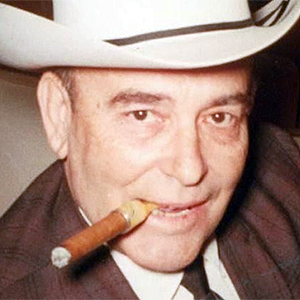
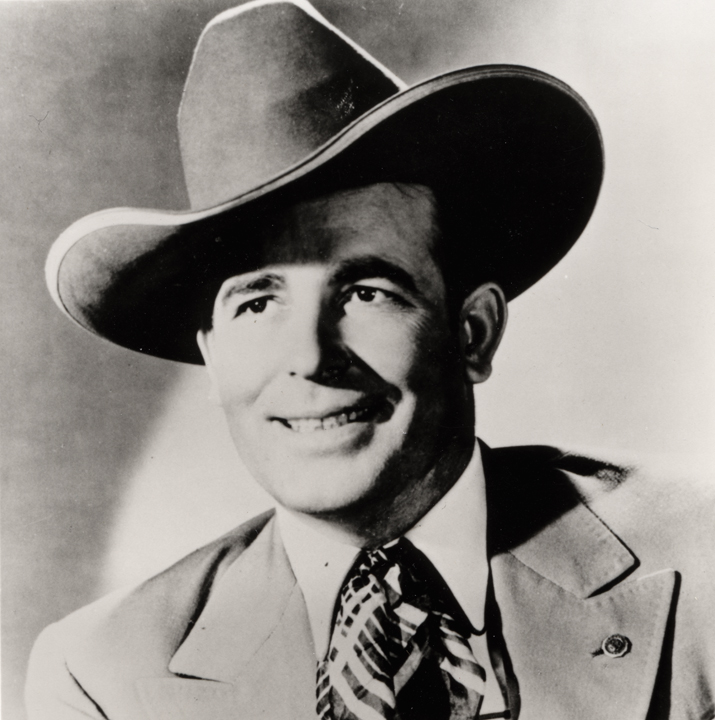 Promotional photo of Bob Wills, late 1930s to mid-1940s.
Promotional photo of Bob Wills, late 1930s to mid-1940s.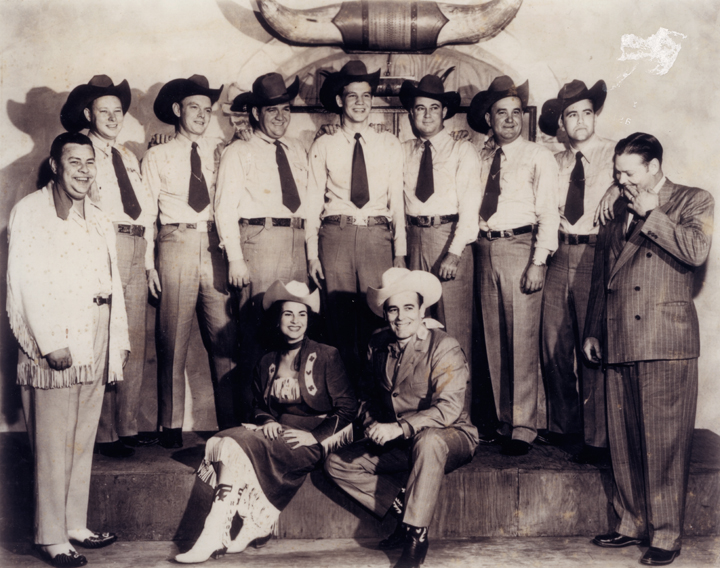 Bob Wills and His Texas Playboys, late 1930s to mid-1940s, in photo that appeared on the collection
Bob Wills and His Texas Playboys, late 1930s to mid-1940s, in photo that appeared on the collection This 80-page Bob Wills songbook was published in 1942.
This 80-page Bob Wills songbook was published in 1942.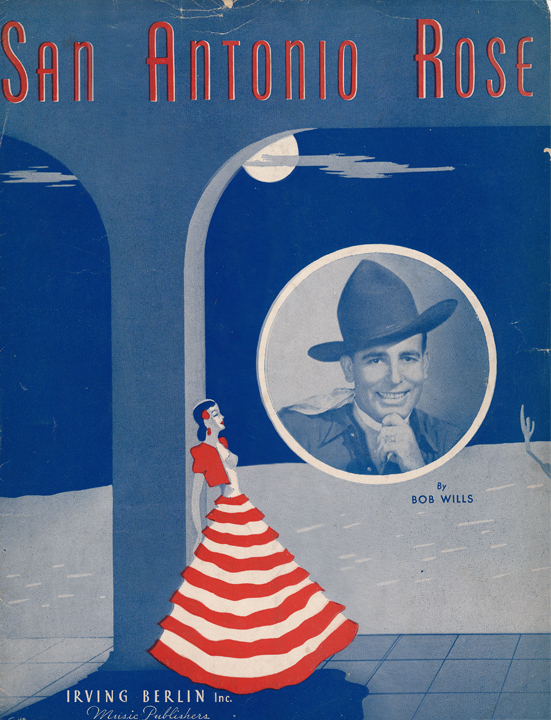 Music for Bob Wills and His Texas Playboys' 1939 song.
Music for Bob Wills and His Texas Playboys' 1939 song.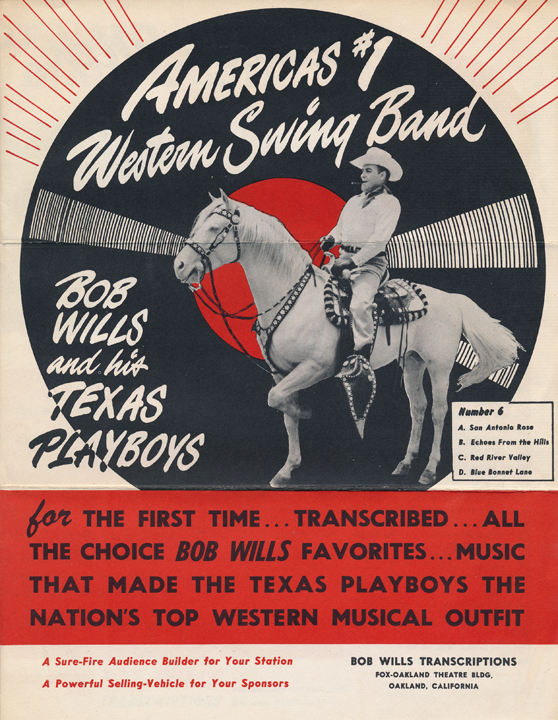
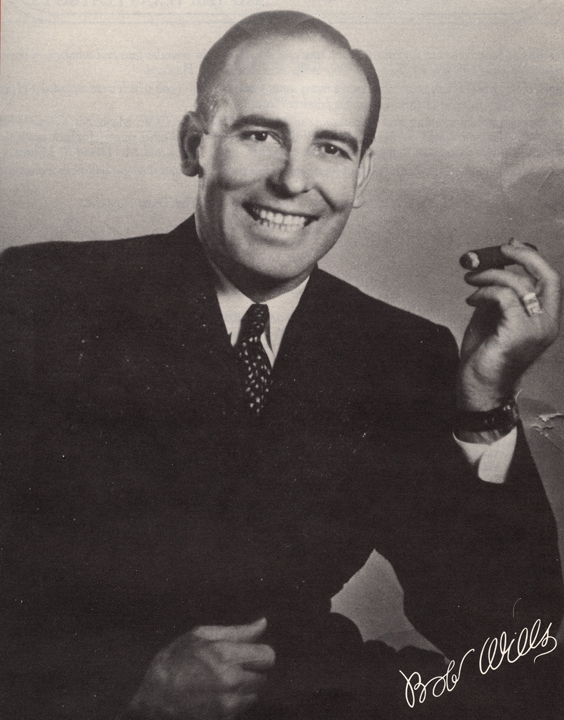 Later promotional photo of Bob Wills.
Later promotional photo of Bob Wills.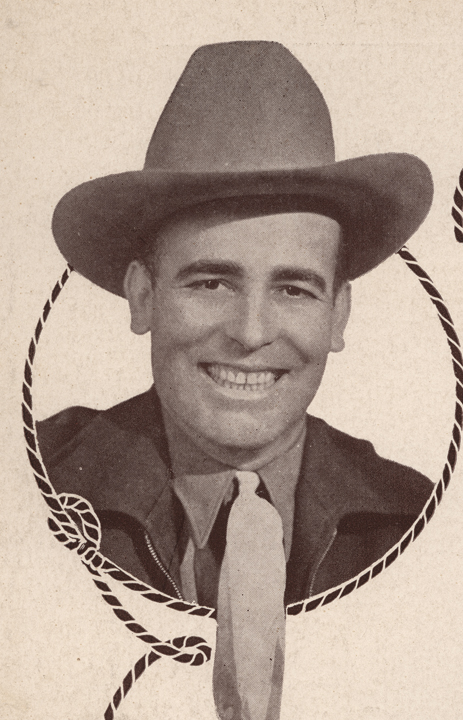 Bob Wills in promotional photo, late 1930s to mid-1940s.
Bob Wills in promotional photo, late 1930s to mid-1940s.